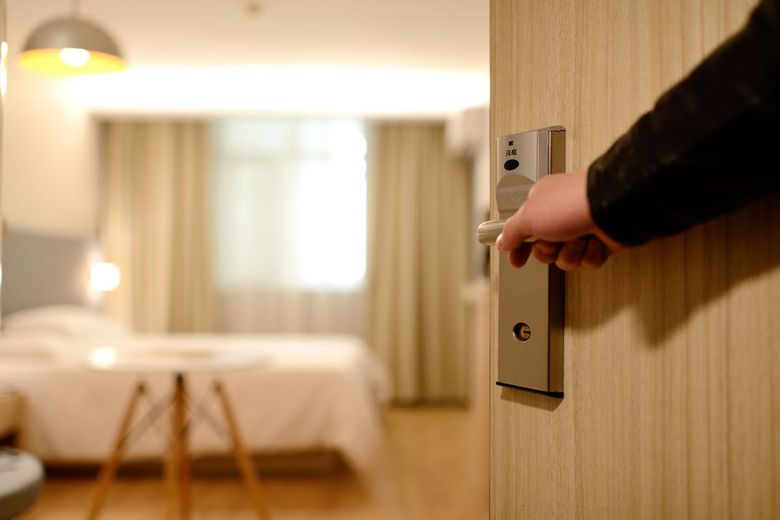
Don’t Lag Behind: Emerging Hotel Technology Trends for Hospitality Industry
By Berta Melder, Brand Manager & Co-Founder at Masterra.com
Not so long ago, all the hotels had the same checking procedures, the same TV channels, and delivered the same experience in general. However, it couldn't last forever and the age of digital technologies introduced new standards of service. People are looking for customization and automated solutions. One-third of all hotel guests in the world are millennials, and experts predict that they will make up over 50% of clients in two years. They want to make reservations from their smartphones, they are looking for a stable network and convenient minimalistic design. The hospitality industry as we know it is going to change forever, and if you want your business to withstand these changes, you need to catch up with the latest trends.
What the Leaders of the Industry Say
It's impossible to ignore the latest hi-tech solutions when you want to please your customers. For example, AI technologies conquer more and more industries every day. We still cannot relax and drink cocktails while AI is searching for a hotel and making reservations, but artificial intelligence is a new technology which has proven to be promising. Hotels that don't want to lag behind have already started using it.
- How is the Hospitality industry leveraging Artificial Intelligence to provide an awesome User Experience?
- The Technology You Don't Want to Miss at ITB This Year | By Pierre Boettner
- Best Western Hotels & Resorts and IBM Watson Advertising Introduce AI-powered Ad to Help Consumers Personalize Vacation Planning
- Invest in emerging technologies, but don't forget about guest experience | By Robert Meza
A great example is Hilton Worldwide. This company introduced an AI-driven concierge in 2016. They called this robot Connie. It's based on a powerful IBM computer Watson. Connie can help visitors in many ways, describing features of the hotel, making dinner recommendations, and suggesting attractions. It greets guests, answers questions, and constantly learns. The more it interacts with the customers, the smarter it becomes, and the more useful its suggestions.
Jonathan Wilson, vice president of Hilton Worldwide says that their team is "focused on reimagining the entire travel experience to make it smarter, easier and more enjoyable for guests." Rob High from IBM notes: "This project with Hilton and WayBlazer represents an important shift in human-machine interaction, enabled by the embodiment of Watson's cognitive computing. Watson helps Connie understand and respond naturally to the needs and interests of Hilton's guests — which is an experience that's particularly powerful in a hospitality setting, where it can lead to deeper guest engagement." If now you can talk to the AI concierge, what else should we expect from the hospitality industry in the nearest future?
Top-5 Emerging Hotel Technology Trends
- Smart Guest Rooms - Smart homes are nothing new, and the majority of millennials are looking for the same experience when choosing a hotel. In the nearest future, everyone will be able to book a specific room of a certain size, with a certain type of the floor, certain lighting, etc. Guests will control air-conditioning and lights with a few taps on the screen. Obviously, hotels also need to re-think design, including accessible plugs in every part of the room so that their guests could easily charge all their devices.
- More Data - Technologies of data collection offer countless opportunities for hotels that want to improve their guest experience. Almost 50% of resorts and hotels are now looking for new ways of collecting data from their guests. This task involves analyzing guest reviews, search engines, and a hotel's cloud-based services. If you don't know where to start, we suggest recording such information as the most popular requests, the most commonly ordered drinks, and methods of booking.
- Energy Conservation - Energy is one of the largest costs, so the majority of big companies is focused on effective energy management. Intelligent technologies allow hotels to monitor energy consumption and improve energy performance. Hilton has already started gathering data from over 4,500 hotels, and Interel went even further, monitoring water consumption. Their guests can control water temperature and flow by using special smart panels that also include an eco mode.
- Virtual Reality and Augmented Reality - VR technologies allow guests to navigate through a hotel before they decide whether or not they're going to stay there. It's also an opportunity for a hotel to tell an engaging story and make the best presentation possible. The Hub Hotel from Premier Inn also found a great way to use the technology of augmented reality by placing special maps in guest rooms. Their guests can point a smartphone to the map and see interesting local places.
- Mobile Technologies - Mobile devices have changed the way guests interact with hotels, and the latter need to interact with the guests the same way. Nobody wants to wait. Immediate mobile bookings, check-ins, and even mobile keys are the latest trends that gain popularity at a frantic pace. Mobile check-ins help hotels eliminate lines, and mobile keys increase security, as hotels get more information on guests who are using them.
Today's hotels are focusing on customization, local experiences, and inspiration. Modern travelers put these factors above all, and the hospitality industry changes to meet their expectations. New technical solutions not only allow hotels to attract more guests but also create a completely new, memorable and genuine experience.
Original Article - https://www.hospitalitynet.org/opinion/4089375.html


